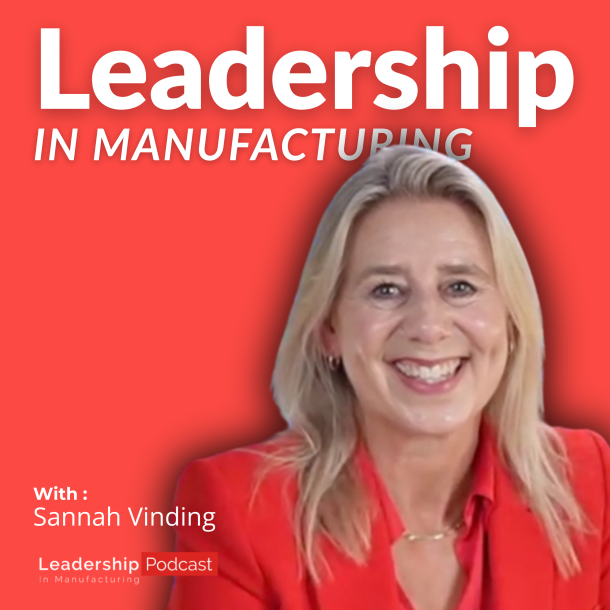Episode 55
Gaining an Edge in the Electronics Industry: From Skills to Strategies

As the electronics industry becomes increasingly competitive, it can be challenging to gain an edge. But with the right skills and strategies, you can stand out from the competition.
I invited Walter Tobin to be a guest on Leadership In Manufacturing Podcast to discuss what it takes to gain an edge in the electronics industry.
Host
Sannah Vinding
Guest
Episode
E55
Key takeaways



We need to home-grown our own people. It’s timely, it’s costly. But to develop your own bench, I think is the way to eliminate the talent shortage.
Remain competitive
It’s becoming more important than ever to stay ahead of the curve when it comes to advancements in our field. We need to have an edge in order to remain competitive and be successful against other related businesses in the global market. For this reason, it is crucial that we prioritize continual learning and work on developing our own skill sets as our industry accelerates its changes in the speed at an unprecedented rate.
Manufacturers in the electronics industry must stay competitive by keeping up with market trends, offering best-in-class products, and building strong relationships with distributors. They should also use their website as a marketing tool to provide useful information and create content that promotes their brand and its products.
Manufacturers in the electronics industry need to stay competitive by investing in best-in-class technology, seeking out new distribution channels, staying up-to-date on changing customer needs, and maintaining a strong online presence. Having a professional website that provides consistent information about your products or services is essential for staying competitive.
The demand for skills
The demand for skills in the workforce is changing rapidly due to a variety of factors. The overall number of employees in the sector is expected to decline over the next decade, but the demand for professional and managerial employees is forecast to increase. Additionally, there is an increasing demand for technicians and higher-level engineers. Remote working has become increasingly popular due to the pandemic, creating a need for upskilling and training in order to maintain performance. Companies are introducing new skills and training to make the transition back to the workplace smoother.
COVID-19 has also accelerated the adoption of fully digitized approaches to learning, allowing for greater personalization and cost-effectiveness. This shift towards digital learning has enabled companies to quickly adapt their training programs in response to changing demands in the labor market. Furthermore, it allows individuals more flexibility when it comes to acquiring new skills or updating existing ones. As such, digital learning can help bridge gaps between employers’ needs and workers’ abilities.
The manufacturer needs to provide certainly accurate, timely, up-to-date, but customized training for each region.
Dynamic opportunities
Walter Tobin

Walter Tobin
CEO/EVP at Electronics Representatives Association (ERA)
Related Episodes
How Leaders Start Using AI Without Overwhelming Their Teams – Episode 134
How leaders can start using AI without overwhelming teams or losing trust. Learn practical, people-first AI adoption strategies for manufacturing, electronics, and supply chain leadership.
How Leaders Turn Technical Data Into Faster Sales Answers Using AI – Episode 133
Learn how leaders build AI agents to support sales and engineering teams, speed up technical answers, and adopt AI without losing trust, judgment, or customer experience in manufacturing.
New Episodes
Bi-Weekly Tuesday







